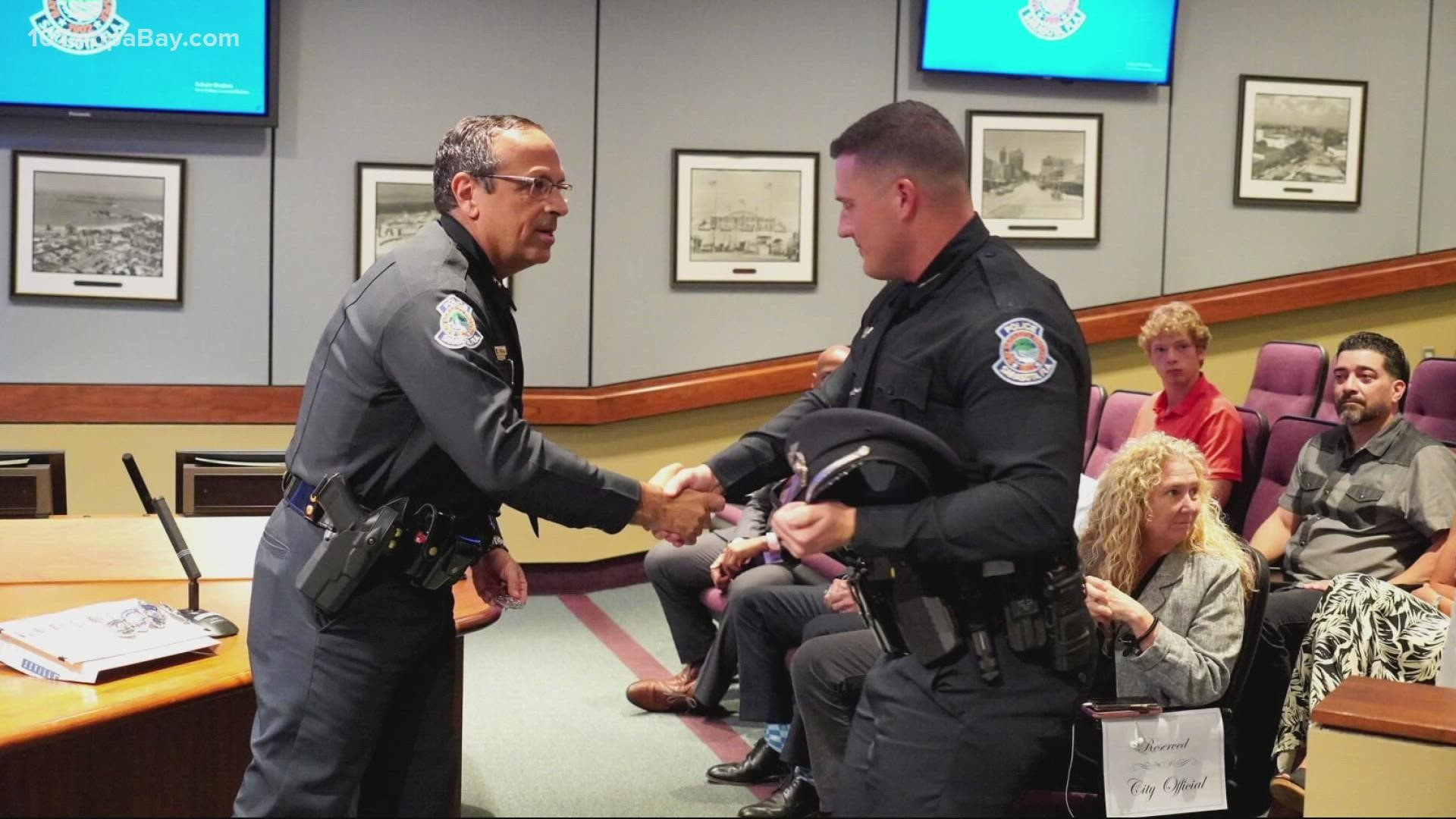SARASOTA, Fla — The Sarasota Police Department says a new diversity and inclusion-based program for new recruits will help improve policing and build community trust.
The training program is in partnership with the local chapter of the NAACP.
The organization presented recruits with various topics, including community expectations of police conduct and community perspectives about incidents that have made national headlines.
Department leaders hope the program would allow officers "broaden their horizon" and understand the community's expectations of its law enforcement officers.
Since January about a dozen new police officers in the City of Sarasota have gone through this training.
"Growing up where I grew up in the Palmer Ranch area of Sarasota, the conversations I had with my parents about the police, it was always 'hey they're always there to help you. Like no matter what so you can do whatever they say. Just comply and do what they are saying,'" said Officer David Knight.
Knight, who is 26-years-old, was one of eight new recruits who was recently sworn in as an officer with the city. His class is the second recruitment class to go through the training program.
The Riverview High School grad said even with a degree in psychology, he has until now taken for granted different views of law enforcement held by different communities and their experiences interacting with uniformed or armed officers.
"This opened up to, you know, some people have been brought up and taught 'hey don't, the police can be bad, they might do something bad to you, you've got to watch them and watch what they are doing.' So that puts them on edge so then when they do have an encounter with law-enforcement they're on edge, and sometimes we get on edge, based off that and sometimes it can escalate things," Knight said.
The class showed him how to apply critical thinking to the spontaneity of his basic training while policing, keeping communities safe and staying alive for his family.
"Just because you are having an interaction with somebody that seems tense doesn't always mean they have done anything wrong. It makes me think back a second about my actions to say hey wait for a second what am I doing, what am I portraying to the public that maybe I am giving off a certain vibe that is making someone act a certain way," he said.
Using real cases and re-enactments, the program explores issues of implicit and explicit biases, including racism, stereotypes and prejudices that may crop up during policing.
"So, many times we don't recognize the biases that we have. We want the officers as well as even the community to understand what their explicit biases are because just as we are working with SPD, we also want to hold the community accountable as well to be good partners. It is a two-way street," said Trevor Harvey, President NAACP, Sarasota.
Several law enforcement incidents from across the nation involving police brutality, officer-involved shootings, and corrupt practices by some law enforcement officers or entire department systems have had an impact on perception, morale, and recruitment efforts according to various law enforcement leaders and watchdog analyses. They say programs like this could begin to help address some of those issues and rebuild community trust.
"The reason that we have incorporated the NAACP is that we have been trained specifically to officer safety, firearms, driving, to the point where that has become second-nature to us. This training with the NAACP is so important because in light of what has happened in the last couple of years with law enforcement, we feel that it is imperative that we work together with our communities of color and we just don't go in and handle every situation the same," said Lt. Andrew Combs.
"Before something happens in Sarasota, it's important for us to get out ahead of that so that we don't have a 'Derek Chauvin' situation," said Combs.
"This type of training is essential for Sarasota police officers in the 21st Century," said Sarasota Police Interim Chief Rex Troche in a statement, in part. "This training assists with broadening an officer's understanding of our community on a local level because they are learning firsthand from leaders in the local chapter of the NAACP."
January marked the first training opportunity for recruiting officers, according to police. The training took place prior to the recruits being sworn in and beginning their field training.
Both the police department and the NAACP are optimistic the program will be expanded to other seasoned officers on the force within the next year.

